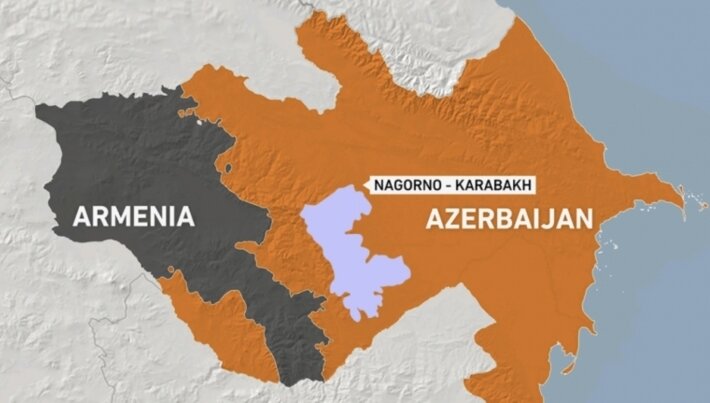Iran welcomes Russian-brokered peace deal between Azerbaijan, Armenia

TEHRAN – Mahmoud Vaezi, the Iranian president’s chief of staff, welcomed on Tuesday a Russian-brokered deal between Azerbaijan and Armenia to put an end to the conflict in the disputed region of Nagorno-Karabakh.
First of all, Vaezi welcomed the Russian mediation efforts and then expressed satisfaction with the end of the conflict between Baku and Yerevan.
“The Islamic Republic of Iran welcomes the mediation of Russia between Azerbaijan and Armenia and the acceptance of the ceasefire by the two sides in the Nagorno-Karabakh conflict. We continue to emphasize the two countries' adherence to international borders and the protection of the civil rights of all,” the Iranian president’s chief of staff said in a tweet on Tuesday noon.
“We believe that negotiations and a political solution can end this long-standing crisis if the two parties to the conflict remain committed to international rules, including the territorial integrity of countries and the citizenship rights of their citizens. While pleased with the end of the war, we hope that the ceasefire agreement will be implemented,” Vaezi added.
The Iranian Foreign Ministry also issued a statement on Tuesday welcoming the trilateral peace agreement.
The statement also said that the agreement is similar to the peace initiative that Iran has recently presented to Russia, Azerbaijan, Turkey, and Armenia.
“The Islamic Republic of Iran welcomes the agreement reached among the Republic of Azerbaijan, the Republic of Armenia and the Russian Federation, which led to a ceasefire and a cessation of hostilities, and hopes that this agreement, the principles of which were included in the initiative of the Islamic Republic of Iran, will lead to the establishment of lasting peace in the Caucasus region in such a way that includes peace and prosperity for the people in all countries of the region and removes existing concerns,” the statement said.
The statement underlined the need to respect the sovereignty and territorial integrity, and inviolability of the official international borders while calling for the liberation of occupied territories, the return of refugees, and respect for the rights of minorities, as well as the withdrawal of all Takfiri forces and foreign fighters from the region.
“The Islamic Republic of Iran also declares its readiness to assist in the deployment of peacekeeping forces of the Russian Federation along the contact lines in accordance with clauses 3 and 4 of the ceasefire agreement,” the Iranian Foreign Ministry said, referring to the clauses in the peace agreement that articulate the mission of the Russian peacekeeping forces.
The leaders of Azerbaijan, Armenia, and Russia issued a late-night joint statement on the Russian brokered agreement to put an end to the long-running conflict in the volatile region of Nagorno-Karabakh region.
“A complete ceasefire and a cessation of all hostilities in the zone of the Nagorno-Karabakh conflict shall be introduced at 00:00 hours Moscow time on 10 November 2020. The Republic of Azerbaijan and the Republic of Armenia, hereinafter referred to as the Parties, shall stop at their current positions,” said the joint statement, adding that Armenia agreed to return the districts of Aghdam, Kalbajar, and Lachin to Azerbaijan in the coming weeks.
Clauses 3 and 4 of the joint statement outlines the places where Russian peacekeeping forces will be deployed.
The third clause stipulates that “along the contact line in Nagorno-Karabakh and along the Lachin corridor, a peacekeeping contingent of the Russian Federation shall be deployed in the amount of 1,960 military personnel with small arms, 90 armored personnel carriers, 380 units of automobile and special equipment.”
And the fourth clause further stipulates that “the peacekeeping contingent of the Russian Federation shall be deployed in parallel with the withdrawal of the Armenian armed forces. The peacekeeping contingent of the Russian Federation shall be deployed for a period of five years with automatic extension by further five-year periods if none of the Parties declares six months before the expiration of the period of its intention to terminate the application of this provision.”
SM/PA
Leave a Comment